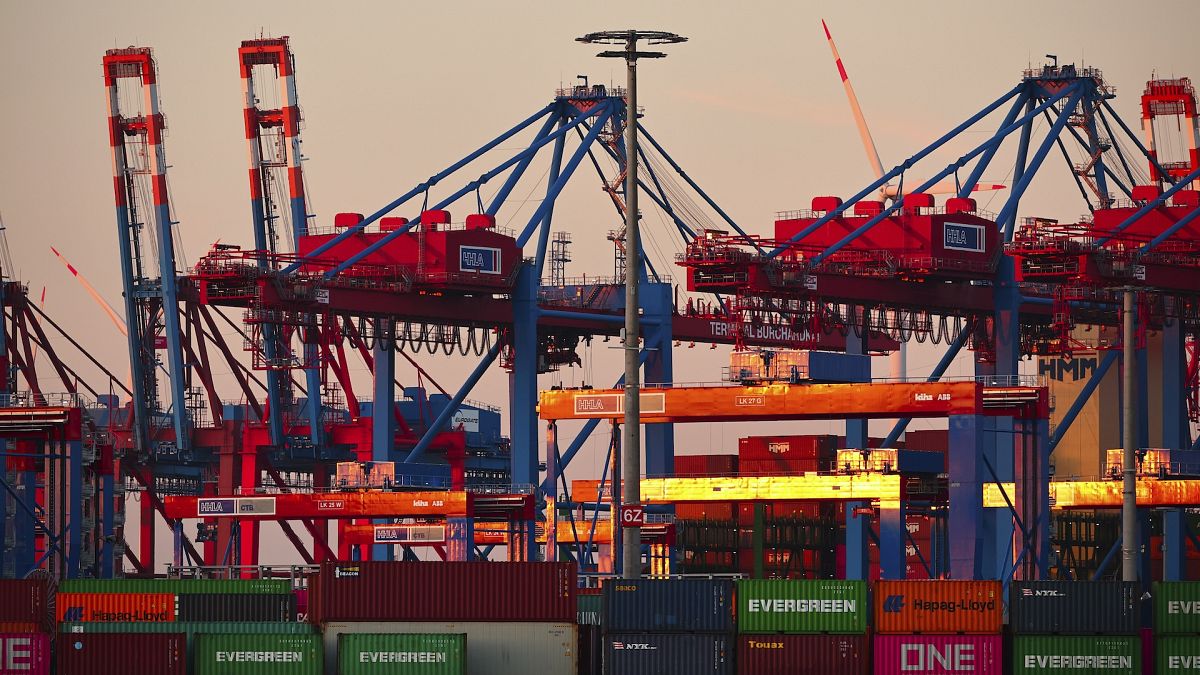Eurozone retail sales grew 0.2% in August, rebounding from July’s flat reading, while Germany’s factory orders plunged 5.8%, marking their worst decline since January. The euro slipped below $1.10 on the news.
Retail sales in the eurozone saw a modest recovery in August, following stagnation in July, according to fresh data from Eurostat.
In August, retail trade volumes in the euro area edged up by 0.2% compared with July, with the European Union seeing a 0.3% increase. The figures marked an improvement from the previous month’s revised flat reading for the eurozone and a 0.1% rise in the broader EU.
On a yearly basis, retail sales in the eurozone climbed by 0.8%, while the EU saw a stronger annual increase of 1%.
The monthly figures came in line with economists’ expectations, but the annual reading for the eurozone fell short of the anticipated 1% rise, reflecting some softness about consumer spending dynamics across the currency bloc.
The data also showed mixed results across various categories. Sales of food, drinks, and tobacco rose by 0.2%, while non-food products, excluding automotive fuel, posted a 0.3% increase.
Notably, motor fuel sales in specialised stores climbed by 1.1%.
Looking at individual member states, Luxembourg recorded the highest monthly increase, with retail volumes jumping by 5.3%. Cyprus and Romania followed, with gains of 2.2% and 1.6% respectively.
In contrast, Denmark experienced the steepest decline, with retail trade falling by 1.5%, while Slovakia, Bulgaria, and Croatia also posted negative growth, all shrinking by around 0.7%.
German manufacturing orders plummet
While the retail sector offered some positive news, the manufacturing outlook in Germany – Europe’s largest economy – painted a much darker picture.
According to data from the Federal Statistical Office, incoming orders for Germany’s manufacturing sector plummeted by 5.8% in August compared with the previous month. This sharp drop was significantly worse than the expected 2% decline, marking the worst monthly contraction since January 2024.
The fall in factory orders was largely attributed to a drop-off in large-scale orders placed in July in areas such as the construction of aircraft, ships, trains, and military vehicles. As these large orders subsided, the manufacturing sector struggled to maintain momentum.
Breaking down the data further, orders for capital goods fell by 8.6%, while intermediate goods dropped by 2.2%.
The consumer goods sector also faced a slowdown, with orders decreasing by 0.9%.
The situation was particularly bad for domestic and eurozone orders, which plunged by 10.9% and 10.5% respectively. However, orders from outside the eurozone provided a silver lining, rising by 3.4%.
Market reactions: Euro under pressure, stocks fall
The poor performance in Germany’s factory sector weighed on the euro, which continued its downward trajectory against the US dollar.
In early morning trading on Monday, the euro slipped below $1.10, down 0.1%. This marks the seventh consecutive session of losses for the single currency, its longest losing streak since September 2023.
Contributing to the euro’s woes were also comments from European Central Bank chief economist Philip Lane, who noted that inflation in the euro area has been cooling faster than anticipated, bolstering market hopes for upcoming interest rate rate cuts.
Equities across Europe also faced sluggish start to the week
The Euro STOXX 50 was down 0.3%, with Milan’s FTSE Mib index underperforming, losing 0.5%, and Germany’s DAX falling 0.4%. In contrast, Madrid’s IBEX 35 bucked the trend, rising by 0.3%.
In the corporate sphere, French luxury giants such as Kering and LVMH emerged as top performers within the Euro STOXX 50, rising 2.4% and 1.1% respectively, on optimism over improved export prospects to Asia, following China’s latest stimulus efforts over the weekend.
On the downside, the pharmaceutical sector was the laggard, with Sanofi dropping 2.2% amid concerns over talc-based products affecting bids for its consumer healthcare division.
Bayer and semiconductor firm ASML Holding also experienced declines, falling 1.8% and 2.5% respectively.

